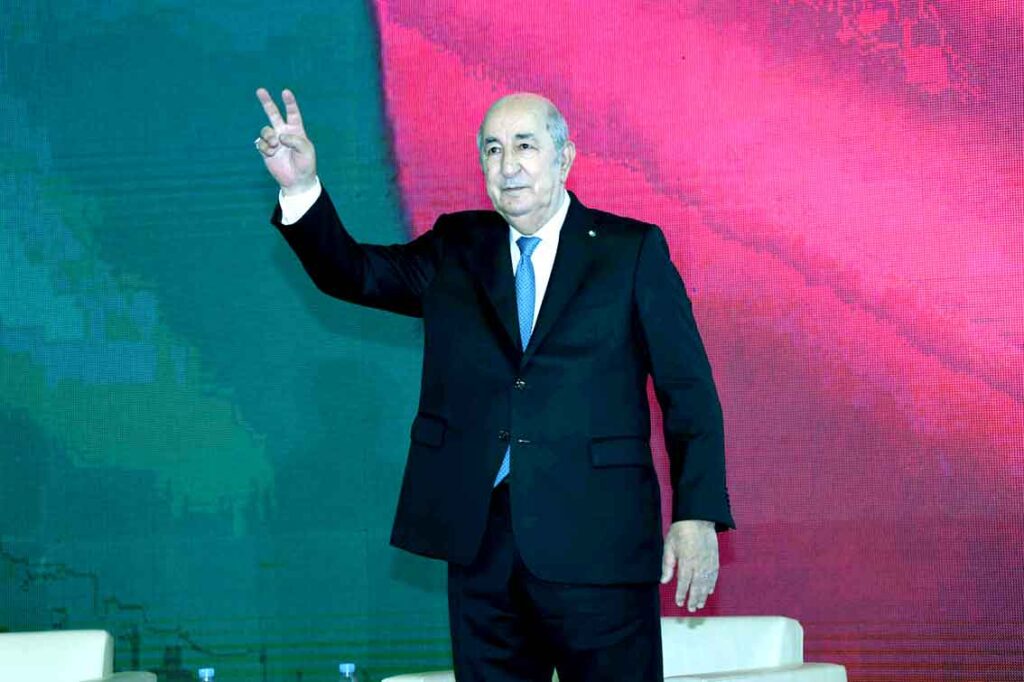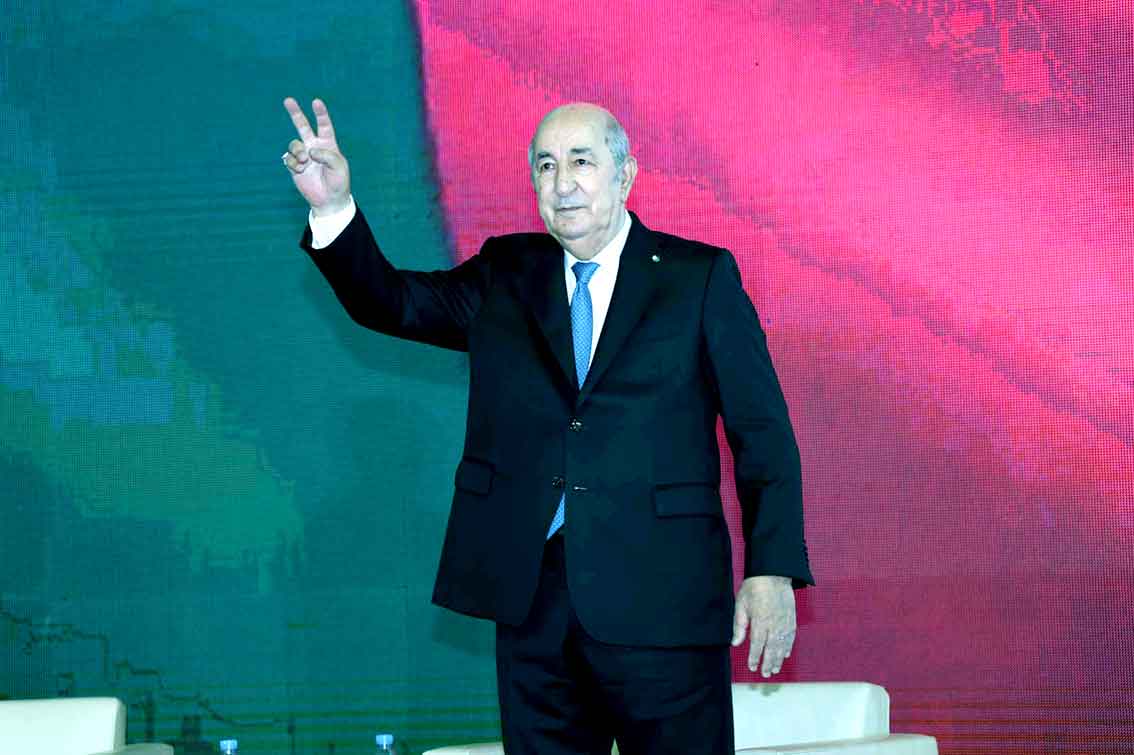
Algerians head to the polls Saturday to cast votes for president and determine who will govern their gas-rich North African nation — five years after pro-democracy protests prompted the military to oust the previous president after two decades in power.
Algeria is Africa’s largest country by area and, with almost 45 million people, it’s the continent’s second most populous after South Africa to hold presidential elections in 2024 — a year in which more than 50 elections are being held worldwide, encompassing more than half the world’s population. Since elections were scheduled in March — ahead of the predicted schedule — there has been little suspense as military-backed President Abdelmadjid Tebboune appears poised to breeze to victory against the two challengers running against him: an Islamist and a leftist. The hot summer campaign has sparked little enthusiasm, apart from on public television, where it’s required that candidate and surrogate appearances be covered. On TV, election season has been presented as a vibrant affair.
“Voting has no meaning in Algeria like in the big democracies,” 28-year-old Kaci Taher told The Associated Press a month before the election. “Where I come from, the results and quotas are fixed in advance in the back room of the government, so what’s the point of taking part in the electoral farce?” “Uncle Tebboune,” as his campaign has framed the 78-year-old, was elected in December 2019 after nearly a year of weekly demonstrations demanding the resignation of former President Abdelaziz Bouteflika . Their demands were met when Bouteflika resigned that April and was replaced by an interim government of his former allies, which called for elections later in the year. Protestors opposed holding elections too soon , fearing the candidates running that year each were close to the old regime and would perpetuate the corruption-ridden system they wanted to end. Tebboune, a former prime minister seen as close to Algeria’s politically powerful military, emerged the winner. But his victory was marred by low voter turnout, widespread boycotts from protestors and Election Day tumult, during which crowds sacked voting stations and police broke up demonstrations.
This year, Tebboune ran as an independent candidate with the support of several political parties including the National Liberation Front, which has dominated Algerian politics since the country wrested independence from France after more than a decade of war in 1962. The southwestern Algeria native and political veteran has framed his first term in office as a turning point, telling voters in a campaign rally the week before polls that he “put Algeria back on track.” To cement his legitimacy both domestically and to Algeria’s allies, he hopes more of the country’s 24 million eligible voters will participate in Saturday’s election than in his first, when 39.9% turned out to vote.“It seems that what matters most to ‘le pouvoir’ in this election is voter turnout to lend legitimacy to their candidate, whose victory is a foregone conclusion,” said Algerian sociologist Mohamed Hennad, employing a term frequently used to describe the military-backed political establishment.Twenty-six candidates submitted preliminary paperwork to run in the election, although only two were ultimately approved to challenge Tebboune. Like the president, both have also emphasized turnout. Neither political novices, they have avoided directly criticizing Tebboune on the campaign trail. Abdelali Hassani Cherif, a 57-year-old engineer from the Islamist party Movement of Society for Peace has made populist appeals to Algerian youth , running on the slogan “Opportunity!” and calling for efforts to boost employment and reform education, where French language has long played a major role in addition to Arabic. Youcef Aouchiche, a 41-year-old former journalist running with the Socialist Forces Front, campaigned on a “vision for tomorrow,” and referenced human rights issues plaguing journalists, activists and critics of the government in Tebboune’s Algeria.
It’s the first time since 1999 that his party, which enjoys strong support among ethnic minorities in central Algeria, has put forth a candidate.Andrew Farrand, the Middle East and North Africa director at the geopolitical risk consultancy Horizon Engage, said both opposition candidates were more aimed at the 2025 legislative elections than the 2024 presidential contest. Because Algerian law funds political parties based on the number of seats they win in legislative elections, they hope campaigning will position them for a strong performance in 2025.“It’s a long game: How can I mobilize my base? How can I build up a campaign machine? And how can I get into the good graces of the authorities so that I can be in a position to increase my seats?” he said. “We’ve seen that in their choice not to overtly criticize president … paired with a very strong message to Algerians to come out and vote.” Besides Aouchiche and Cherif, others boycotted the contest, denouncing it as a rubber stamp exercise that could only entrench the power of Tebboune and the elites that rule the country.


